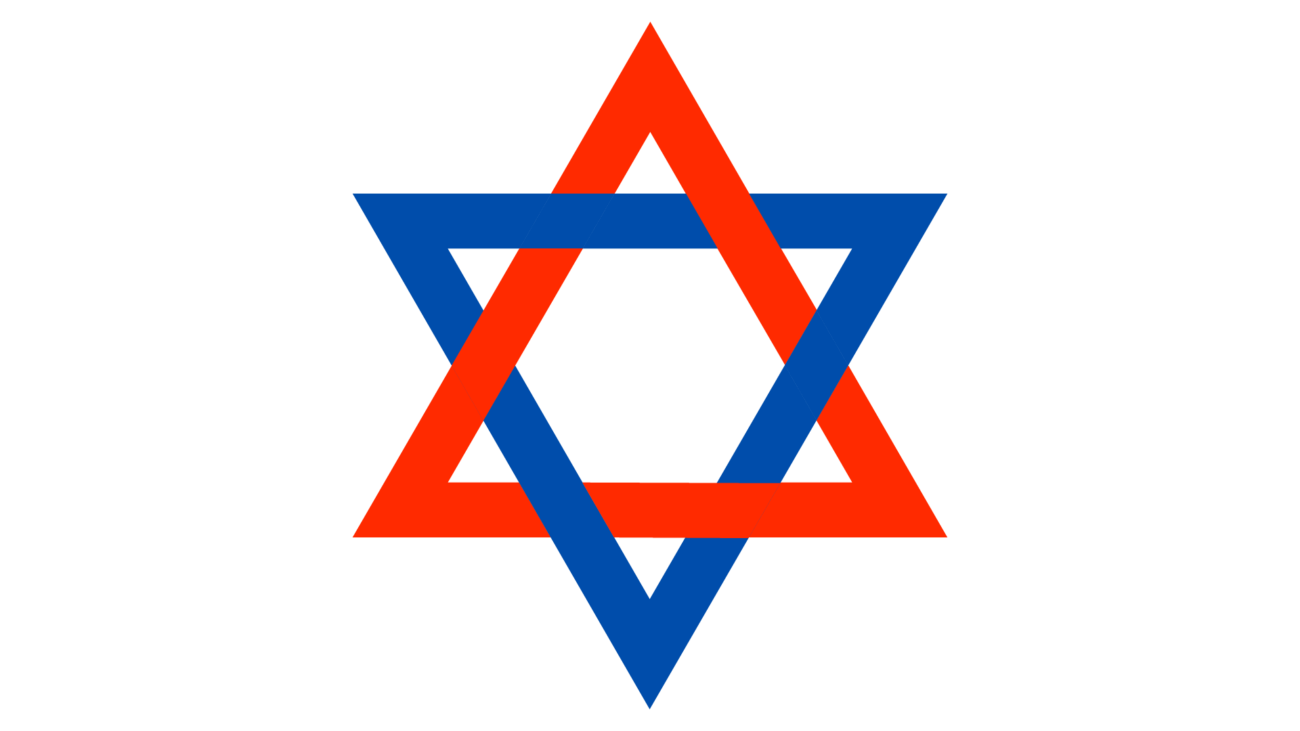I’ve learned to appreciate fuzzy things over the last six years.
Integrity and Doing One’s Will
In each situation, focus on walking a path of maximum integrity, conscious of your appointed orbit.
Why you need self-discipline to do your will
If you’re surrounded by clowns, chances are good you climbed into a clown car.
Magic and Macrocosm
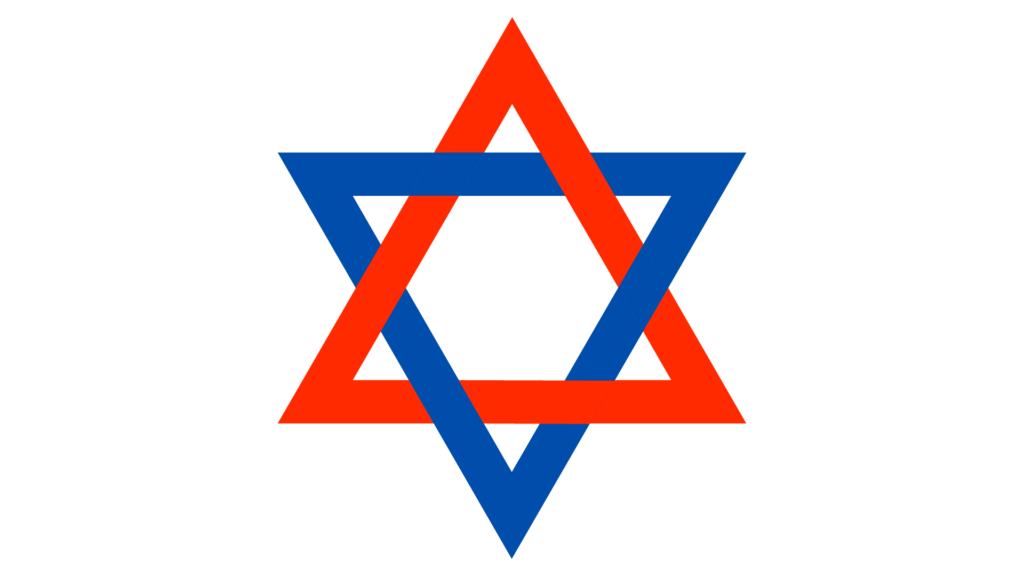
One of the distinguishing features of ancient magic is the view of the universe as a living whole in its own right: what is called a “cosmos” or a “macrocosm”. Things are not just mechanically related to one another but tend toward higher purposes, the highest of those purposes being the metabolism of the whole.
There are no isolated individuals in such a world. We are all organs of this more fundamental cosmic organism—or, if you prefer, of a divine order of things. The magician plays a special role in this divine order. They are not simply a miracle-worker or healer. They are also responsible for assuring that the divine is firmly anchored in this world, so that the cosmological metabolism may continue.
One implication of this is that not just anyone can become a magician. Magic is not principally a set of techniques you pick up and apply to an otherwise pliable substrate. One must be selected for such work. The work itself cannot be carried out just as one wishes—unless one wishes to offend the gods. Another implication is that one experiences the macrocosm as an undeniably vast, awesome, even terror-inspiring entity that dwarfs the individual—and yet at the same time, there is the recognition that we are somehow essential to this whole. Without the magician there to anchor the divine in this world, the divine would not exist.
Crowley’s idea of true will could be viewed as an attempt to reestablish this ancient idea on a more modern footing. The true will of a person is not their freedom of choice to do this or that. That’s what Crowley calls “do what you want”. Your true will is the role you are predestined to play in the universe. It’s your karma, which means that it is irreducibly relational. There is no meaning to your will outside of the particular way of relating with the rest of the universe and the other stars in it—meaning, there is no way to get rid of “accidents” such as embodiment, the family and culture you happen to be born in, the state of the country and the world you find yourself in, and all the problems of human relatedness. All of it needs to be worked with skillfully, a work Crowley generalized with the term “magick”.
This is why Crowley says you have to discover your true will, accept it, and live in accordance with it, not attempt to invent it. It’s the attempt to invent ourselves according to preconceived ideas of what a person should be that leads to all the trouble in life. Instead you need to learn the nature and powers of your own being and how they express themselves in relation to the rest of reality, and learn to serve that microcosmic function to the best of your ability.
The attempt to jettison the macrocosm and to make magic all about “doing MY will” (as though “I” own the will rather than the will owning or expressing itself through “me”) in abstraction from a higher, preordained purpose—or the attempt to define “truth” purely in terms of what I find “useful”—is basically what Crowley means by the Left-Hand Path. The person who follows that path of radical individualism or subjectivism abstracted from the purpose of the whole is the Black Brother, who is the antithesis of the Saint. The Black Brother thinks they have a will; reality is what they will it to be. The Saint has come to understand the reverse: the will has created a temporary, imperfect self so that it may experience the perfection of existence. The Saints understands themselves as instruments of that higher reality.
Thelema’s highest good
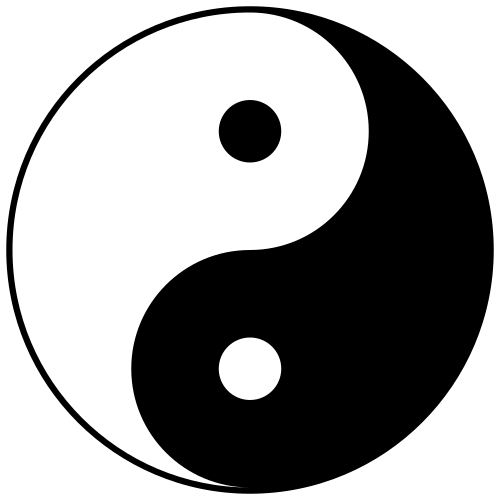
But to love me is better than all things.
Like everything else in Thelema, its highest aim is 2-in-1.
It’s doing your will—without lust of result.
It should now be perfectly simple for everybody to understand the Message of the Master Therion.
Liber II, The Message of the Master Therion
Thou must (1) Find out what is thy Will. (2) Do that Will with (a) one-pointedness, (b) detachment, (c) peace.
Then, and then only, art thou in harmony with the Movement of Things, thy will part of, and therefore equal to, the Will of God. And since the will is but the dynamic aspect of the self, and since two different selves could not possess identical wills; then, if thy will be God’s will, Thou art That.
There is doing or going, then there’s unadulterated openness and acceptance of whatever comes from that without a shred of resentment.
The two are in perfect balance and identity at the point of the triangle.
Another way of looking at it is that each of us is individual and has their own, individual will, thus their own particular course or path through eternity.
Equally and at the same time, though, there is only one aim that the Hadit in us has, and that’s union with Nuit. But Nuit is not a thing, and therefore Hadit’s hunger for Her can never be satisfied. He is never united with Her but is constantly uniting with Her, realizing one latent possibility within Her after another after another after another.
In other words the going is not toward a particular aim; it is toward All.
And the going is not of a particular entity; rather, substance passes over completely and without remainder into change or love, never stopping for even a moment just to be.
The path leading to this realization—where the individual is reconciled with the universe, where freedom is reconciled with necessity—is the spiritual system of Thelema, which can be described as magick or love under will.
Each action or motion is an act of love, the uniting with one or another part of “Nuit”; each such act must be “under will,” chosen so as to fulfil and not to thwart the true nature of the being concerned.
“Introduction” to the Book of the Law
The technical methods of achieving this are to be studied in Magick, or acquired by personal instruction from the Master Therion and his appointed assistants.
The method of Magick in this—and in all—Work is: “love under will.”
Djeridensis Comment on AL I.55-56
Technically, any practice or belief leading to this outcome could be considered “Thelemic,” whether Crowley thought of it or not.
Here is one such exercise. Right now, right at this moment, does it seem to you as though things could be other than exactly as they are? How do you know that? Can you prove that to yourself? Try, and take note of what happens.
But any exercise that is not leading toward that end—pure doing + pure indifference—is a desire for the conditioned. It’s the subordination of will to love or what Crowley called black magick.
It doesn’t mean it’s “evil”. From a conventional point of view, it’s usually considered quite good, actually (i.e., harmless). It just leads where all desire for conditioned things leads: dissatisfaction and resentment toward existence.
Between Rationalism and Fanaticism
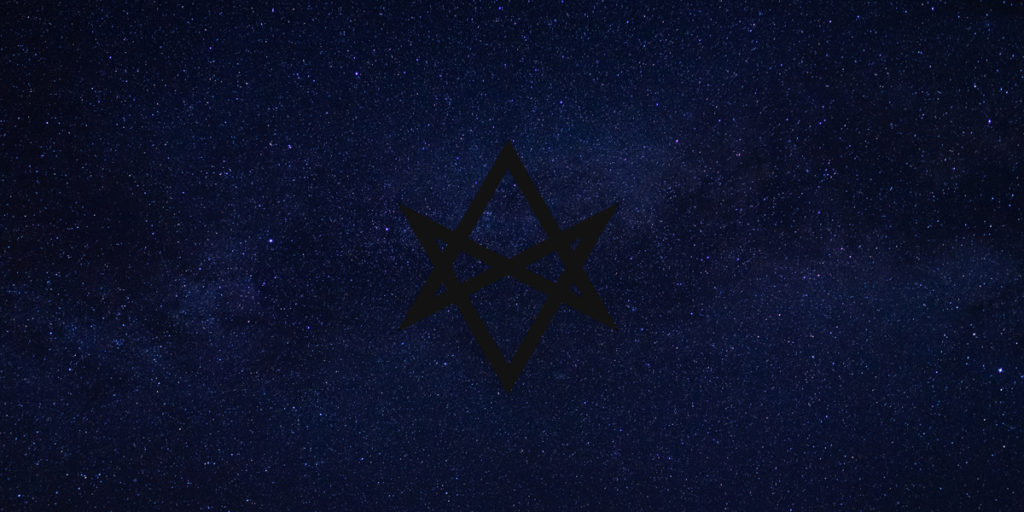
In my opinion what makes Thelema distinctive is not the occultism, not the ontology, not the ethics, not the individualism. It’s that he took the western occult tradition with its God as a creative artist and inflected it through a Nietzschean understanding of life.
Renaissance occultism is based upon a view of the cosmos where everything is ordered into spheres or levels with Earth as the focus. Natural magic is about drawing power or spiritus down from higher spheres into lower ones. “Cabalistic” magic is about ascending to superluminary spheres and mastering the angelic forces there—which tips over very easily into mysticism, as it does in Thelema. In short it’s based on a hierarchical, anthropocentric view of the universe as a kind of container focused on human affairs, and the container is overall not that large.
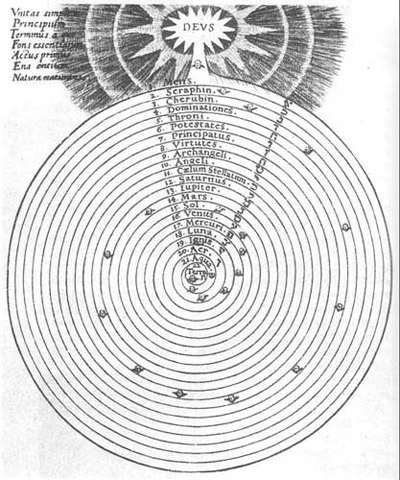
This view was largely replaced by the natural philosophy in the 17th and 18th centuries. According to this new view, the universe does not behave according to purposes but rather mechanisms. There are no “pulls” in the universe, only “pushes”. And the universe in which these abstract mathematical laws operate is vast enough to overwhelm the imagination and the human perspective all together. The picture of the universe generated by this natural philosophy ultimately left up in the air the place of humans in it. And with this disenchanted view of nature came a challenge to both religion and magic.
Rather than recoiling from this picture of nature into a kind of reenchanted fantasy about life, Crowley instead embraces it. The sheer enormity of the cosmos is one of the premises of Crowley’s view of reality, embodied in the goddess Nuit. The pure mathematical view of reality is not rejected either but embraced. Mathematics was part of occultism going back at least to Pico, but Crowley really makes it one of the main themes of his spirituality. So in other words rather than trying to hide from the implications of modernism, Crowley leans into them.
And he understands the fundamental spiritual problem in a very modernist way. The problem we face is not suffering, and it’s not ethics. These are pre-modern or early modern ways of looking at the problem. No, the main problem is meaning. It’s the senselessness of the world. Crowley was motivated by this experience of senselessness at least since he was a student at Cambridge, and he writes about it at least as late as Little Essays Toward Truth.
What then determines Tiphareth, the Human Will, to aspire to comprehend Neschamah, to submit itself to the divine Will of Chiah?
Aleister Crowley, Little Essays toward Truth, “Man”
Nothing but the realisation, born sooner or later of agonising experience, that its whole relation through Ruach and Nephesch with Matter, i.e., with the Universe, is, and must be, only painful. The senselessness of the whole procedure sickens it. It begins to seek for some menstruum in which the Universe may become intelligible, useful and enjoyable. In Qabalistic language, it aspires to Neschamah.
The way he understands a possible solution to senselessness is very modernist as well. The solution cannot be sought in reason. Reason operates according to the principle of sufficient reason, i.e., for any proposition F, there must be a ground G for it, or for any event B, there must be a sufficient explanation A. Putting the principle of sufficient reason at the center of human relating to the world is what generated the picture of a senseless, purely mechanical world in the first place. Therefore, reason—specifically the application of the principle of sufficient reason—must be limited, but to limit reason it must be transcended.
But—the transcendence of reason cannot interfere with the legitimate operation of reason within its own domain. Crowley is not looking to reenchant nature in some naive way. He accepts the findings of the scientific view of reality and even holds them to be axiomatic for his spirituality. Nor can the transcendence of reason be a mere animalistic “overcoming” of reason. One cannot simply will oneself to be irrational, for instance. Both of these avenues would represent a kind of fanaticism.
So Crowley has to manuever somehow between the Scylla of rationalism on the one hand and the Charybdis of dogmatism or fanaticism on the other.
This is a very modernist—specifically German Idealist—way of looking at things. When a person with a background in the philosophy of Kant, Fichte, Hegel, and Nietzsche hears Crowley talking about transcending “because,” they’re hearing a tune they could hum in their sleep.
And Crowley’s proposed solution to this problem is will. Will transcends reason. You cannot ask “why” of will. In and of itself it prevents the questioning but instead gives orders. It’s authoritative. This is how he avoids rationalism.
But will also represents the “true” self of the individual. It is not a mere replacement for Jehovah. It is not a projection of the law of the father. Nor is it exactly bodily or animal instinct. This is how Crowley avoids fanaticism.
Magick and Dwelling
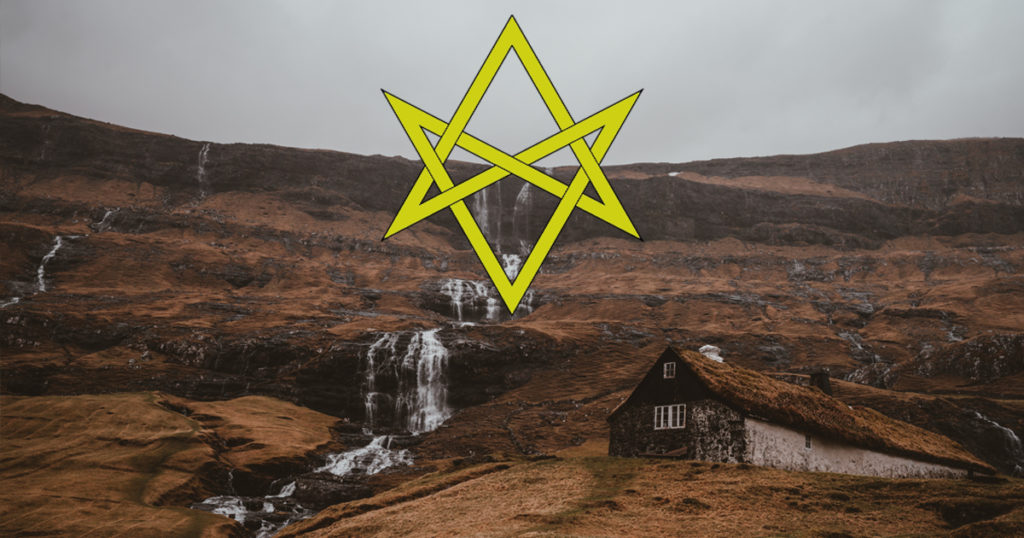
One of the conspicuous features of the coronavirus pandemic is how little control we have over the situation.
We’re facing a novel virus, one which has never infected human beings before. We have no vaccine. We have no treatments.
The one non-pharmacological intervention we do have—social distancing—is leaving a lot of people feeling powerless. They can’t engage in the activities that bring them pleasure. They can leave their houses only sparingly. All we’re left to do now is wait, and that can feel disempowering.
But even in situations that feel disempowering, we are duty-bound to understand circumstances as best we can and to bring them under our control.
Learn to understand clearly how best to manipulate the energies which you control to obtain the results most favourable to it from its relations with the part of the Universe which you do not yet control. Extend the dominion of your consciousness, and its control of all forces alien to it, to the utmost. Do this by the ever stronger and more skilful application of your faculties to the finer, clearer, fuller, and more accurate perception, the better understanding, and the more wisely ordered government, of that external Universe.
—Aleister Crowley, “Duty”
If you’re not a virologist or a physician, chances are it may feel as though there is very little to exert your control over. But times like this, when so much control has been taken away, it makes sense to concentrate on those things over which we still do have some or even complete control. One of those things is our dwellings.
As I said in my recent video, in order to keep your body safe, you need to keep the virus out of your home. Another way of saying this is that you must expand your sense of self so that it also includes the place where you dwell.
This is not a dimension of doing one’s will that should be taken lightly in any case. Commenting on the Magus card in the Book of Thoth, Crowley says:
This card therefore represents the Wisdom, the Will, the Word, the Logos by whom the worlds were created. (See the Gospel according to St. John, chapter I.) It represents the Will. In brief, he is the Son, the manifestation in act of the idea of the Father. He is the male correlative of the High Priestess. Let there be no confusion here on account of the fundamental doctrine of the Sun and Moon as the Second Harmonics to the Lingam and the Yoni; for, as will be seen in the citation from The Paris Working, (see Appendix) the creative Mercury is of the nature of the Sun. But Mercury is the Path leading from Kether to Binah, the Understanding; and thus He is the messenger of the gods, represents precisely that Lingam, the Word of creation whose speech is silence.
Here we find Crowley binding together several concepts:
- The will (the central theme of the spiritual system of Thelema).
- The Son, which as part of the Holy Trinity represents the manifestation in act of the idea of the Father. Crowley here explicitly references John I where we read,
“In the beginning was the Word, and the Word was with God, and the Word was God. He was with God in the beginning. Through him all things were made; without him nothing was made that has been made. In him was life, and that life was the light of all mankind. The light shines in the darkness, and the darkness has not overcome it.”
In other words the Son—and hence the will—is not to be thought of as just a particular person (say, Jesus of Nazareth) but something more akin to the invariant structure of the cosmos. It is that act of the Father (the principle of consciousness) whereby the universe becomes intelligible. - To say that the Son renders the universe intelligible to us is to say that it is by virtue of the Son that the universe is anything at all to a consciousness like ours. It is that which allows things to be what they are, to shine forth as phenomena in their own right. Thus the creative Mercury or Son is of the nature of the Sun (that by means of which the sensible is made sensible).
- This relationship between manifestation or shining forth and speech or the Word is given in the Greek word, logos. Logos is related to légō, which means “I put in order, arrange, gather.” Logos or the Son is the speech that gathers, and by gathering things marshals them forth into visibility.
- “But Mercury is the Path leading from Kether to Binah, the Understanding”. In other words, it is attributed to the path of ב or Bet.
Bet means house.
Tying this complex strand of ideas together we might say that the Magus or the magician is that individual whose characteristic mode of action is to call beings forth into the light so that they may be what they are and understood as they are. The magician accomplishes this by “speaking” a certain way, by gathering them and showing them. And this mode of speech—this evocation—is intimately tied up with houses, with a particular mode of dwelling on the face of the Earth.
In other words, magic is the transformation of nature into a home. As God the Father speaks nature into intelligible existence by calling it forth into his own radiance, so do we make our lives meaningful when we order the circumstances we find ourselves in in such a way as to suit our own purposes.
Thus Magick is the Science and art of causing Change to occur in conformity with Will.
God the Father in manifestation is the Sun, Tiphareth. The Light or Speech given off by the Father—the Son—is Mercury, Hod. This Speech returns to the Father by means of the Holy Spirit, symbolized by the dove which is Venus or Netzach. It issues back into the House of the Sun, Tiphareth, whose meaning in English is beauty.
This is why the Knowledge and Conversation of the Holy Guardian Angel (i.e., the Holy Spirit) results in the beatific vision. This is a vision of the oneness, beauty, and effulgence of all things, which Crowley also equates with atmadarshana.
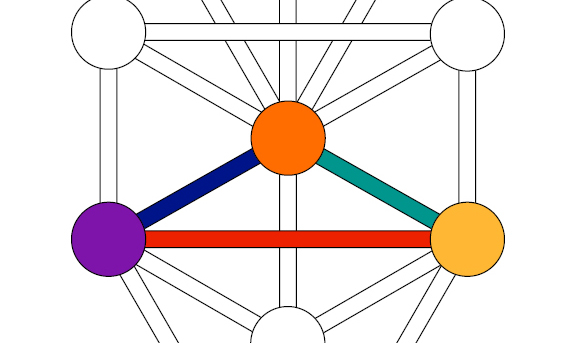
The three paths connecting Tiphareth, Hod, and Netzach—Ayin, Peh, and Nun—add up to 200, the enumeration of Resh, which means head. The card The Sun is attributed to the path of Resh on the Tree of Life.
But from a microcosmic point of view, we might say that we imitate the act of the Father when we dwell in our abodes in a way which is beautiful. It is not the purely instrumental act of dwelling which matters so much as the excessive and playful mode of dwelling—dwelling for its own sake, i.e., aesthetic enjoyment.
Thus Crowley also says of magick that it is the Art of Life Itself.
So if you’re looking to perform magick in the face of the coronavirus pandemic you might try two things:
- Expand your sense of self to fill the place where you currently live. Get to know every little nook and cranny of the physical building you occupy. Purge it of everything alien. Rearrange it—speak order into it—so that it reflects as closely as possible the divine order, i.e., consecrate it to the accomplishment of your will.
- Beautify it to the extent you can. Don’t just be stuck here. Make sure what you see when you open your eyes every day is what you want to see. Think of your home as the House of the Sun, i.e., Tiphareth. The House of God is the beautiful house. Make sure it remains that way.
Thelema and Postmodernism
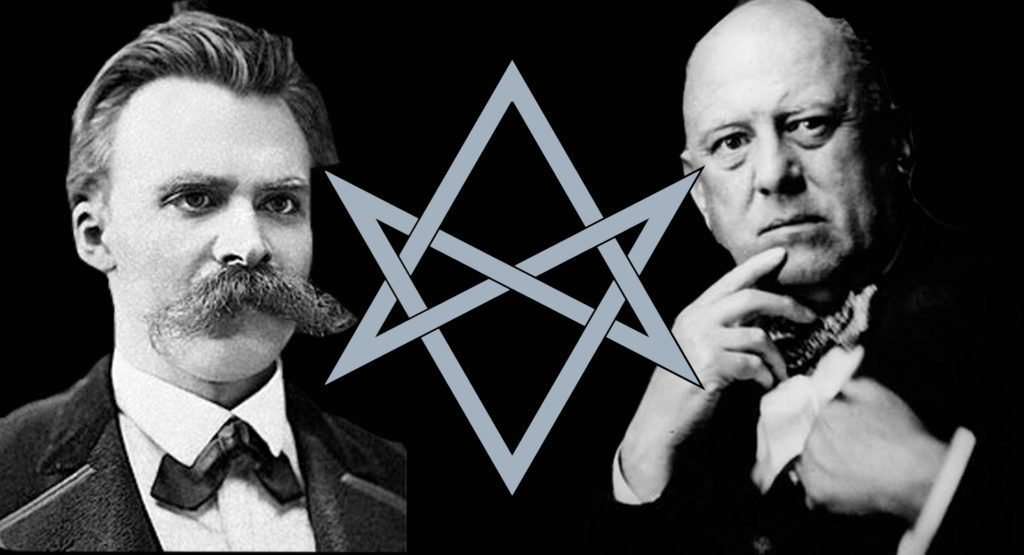
Good grief. Somehow I made it all the way through the latest in Thelemic Union, a refutation of a prior article attacking “postmodern” or completely relativistic interpretations of Thelema.
When I’ve attempted in the past to orient Thelema in, well, any direction, I’ve been accused of having an “Old Aeon” perspective on Thelema, which is really just code for “I don’t like your opinion but am too weak to refute it,” so I am in some respects sympathetic toward the complaints made by Brother Sol-Om-On in the original piece being refuted here.
That being said, the points the author, James Gordon, makes at the beginning of the article are good ones and should be well-taken by anyone who wishes to bring philosophy to bear on Thelema.
Crowley was deeply influenced by Nietzsche. In fact I would say more than any other philosopher, it is Nietzsche who looms over Thelema.
But among other things, Nietzsche is the grandfather of postmodernism. (Martin Heidegger is arguably its father.) It’s difficult taking Nietzsche seriously—and Crowley did—without simultaneously adopting some of the perspectives which would later fall under the label of “postmodernism”.
In fact if I were going to level a criticism at “contemporary Thelema,” I would say that many Thelemites do not take Nietzsche or postmodernism seriously enough. They tend to view Crowley from an overly and overtly modernist perspective.
For example they take the notion of the subject—specifically the autonomous subject—too seriously. They construct a religious perspective—what in postmodern parlance would be called a “metaphysics of presence”—around MY preferences, MY choices, MY sexuality, MY responsibility, etc. This relies on a notion of subjectivity that both Nietzsche and Crowley challenged.
Take for instance the concept of Will, arguably the most important concept in Thelema. Will is not identical with your power of choice. In fact Crowley seemed pretty clearly to have been a determinist, i.e., someone who does not believe in freedom of choice. (Yes, I am aware he uses the term “free will” sometimes. Don’t @ me.) Nietzsche held to a similar point of view, regarding freedom of choice to be a fiction invented by the mind to make it appear as though the end result of the battle of many “wills to power” in a person is somehow “mine” in a final, metaphysically-grounded sense.
The desire for “freedom of will” in the superlative, metaphysical sense, such as still holds sway, unfortunately, in the minds of the half-educated, the desire to bear the entire and ultimate responsibility for one’s actions oneself, and to absolve God, the world, ancestors, chance, and society therefrom, involves nothing less than to be precisely this causa sui, and, with more than Munchausen daring, to pull oneself up into existence by the hair, out of the slough of nothingness.
Nietzsche, Beyond Good and Evil
Crowley differs from Nietzsche insofar as he thinks that whatever unfolds within the sphere of the individual is the predestined result of a course chosen outside of time by one’s Holy Guardian Angel or True Self. His perspective here seems to be closer to the monism of Leibniz than Nietzsche’s.
This is the evident and final Solvent of the Knot Philosophical concerning Fate and Freewill, that it is thine own Self, omniscient and omnipotent, sublime in Eternity, that first didst order the Course of thine own Orbit, so that that which befalleth thee by Fate is indeed the necessary Effect of thine own Will. These two, then, that like Gladiators have made War in Philosophy through these many Centuries, art made One by the Love under Will which is the Law of Thelema.
Liber Aleph, “De harmonia voluntatis cum destinia,” as quoted in NC on AL I.57
This is not just a passing opinion or remark on Crowley’s part but has importance for the pinnacle and ultimate goal of his spiritual system, which is something like amor fati or love of fate. So the result is similar to Nietzsche’s, although the philosophical contrivances used to get there are somewhat different.
Be that as it may, the problem with a lot of interpretations of Thelema is not that they are overly “subjective” or “postmodern”. I think from Crowley’s perspective they would not go far enough in that direction. Until the ground under your feet has completely vanished, you’re not really in a position to transcend. Transcendence requires a certain motivation, a kind of urgency or emergency brought about by a deconstruction which the (over-)reliance on “I-me-mine” is in place to prevent.
Nothing but the realisation, born sooner or later of agonising experience, that its whole relation through Ruach and Nephesch with Matter, i.e., with the Universe, is, and must be, only painful. The senselessness of the whole procedure sickens it. It begins to seek for some menstruum in which the Universe may become intelligible, useful and enjoyable. In Qabalistic language, it aspires to Neschamah.
This is what we mean in saying that the Trance of Sorrow is the motive of the Great Work.
Little Essays Toward Truth, “Man”
This gets confusing because Crowley says “magick is the science and art of causing change to occur in conformity with will.” But listen to the talk I gave on this a couple years back. I step through this really carefully. This is not about the primacy or supremacy of willing in the sense of bringing about a state of affairs that you want. It’s about the destruction of that very perspective.
The method of Magick: Love the mode in which Will operates. The method of Magick in this—and in all—Work is: “love under will.”
Djeridensis Comment on AL I.55-56
Magick is ultimately the art of illusion or of what is illusory. Philosophically and spiritually it is concerned with destruction or the destructive quality of speech.
It’s worth keeping in mind that the mystical “center” or “source” of Thelema is not a presence at all but an absence. It is indicated by Harpocrates/Hoor-paar-kraat.
The Author [of The Book of the Law] called himself Aiwass, and claimed to be “the minister of Hoor-Paar-Kraat”; that is, a messenger from the forces ruling this earth at present, as will be explained later on.
“Introduction” to Liber AL vel Legis
At the center and source of Thelema is something of a performative paradox. The Book of the Law, the foundation of all our work, is the speech of the god of silence. Speech or logos is presence par excellance. Yet Harpocrates, conspicuously, can never be made present.
Who worshipped Heru-pa-kraath have worshipped me; ill, for I am the worshipper.
AL II.8
In the Gnostic Mass, a similar idea is expressed in the line, “O secret of secrets that art hidden in the being of all that lives, not Thee do we adore, for that which adoreth is also Thou.”
Keep in mind that Harpocrates is the Silent or True Self. What these passages seem to indicate is that selfhood is not to be understood in terms of presence. You are not there as an object to yourself. (If you were, you would no longer be subject but object.) The presence of oneself is always deferred.
Another way of saying the same thing is that the characteristic mode of being of this True Self is not properly understood as “a being” or a mode of presence but rather as a kind of going or motion. But it is all-too-easy to conceptualize this going as just another form of being present. This leaves out an important facet of motion, which is that it is a form of change or of destruction. Harpocrates is closely aligned with Aleph and the A or Apophis moment of the IAO triad.
…therefore is the knowledge of me the knowledge of death.
AL II.6
Now think of this in the context of Crowley’s numerous pseudonyms, magical and otherwise: Perdurabo, Chioa Khan, TO MEGA THERION, Oliver Haddo, OU ME, etc. Even when he signs his name “Aleister Crowley,” that’s not his legal name. His legal name was always “Edward Alexander Crowley”. Crowley’s literary presence is a play of absence and representation. He’s presenting himself in such a way as to say, “You think you’ve got me, but you don’t.”
And this gets to the second point which comes out in these passages, which is that self-possession—hence true self-governance and autonomy—is impossible, eternally deferred. No sooner have we turned toward the “True Self” than it recedes, vanishes, reveals itself as an absence of speech, by silence. This flies directly in the face of the notion that we can somehow possess or express an “authentic” self through things like preferences or even responsibilities.
As I said in my recent talk on nihilism, Will in Thelema is best understood as a solution to the problem of nihilism. But in order for the will to serve this function, it cannot be a pure, animalistic overcoming of circumstance that simply runs counter to reason. That kind of brutishness is what Nietzsche would have identified as part of the symptomology of nihilism, not its overcoming.
Even if the loss of ground is not known directly and specifically, it’s still felt, and so people look for something to plug the gap. Investing a dictator or a cult leader with divine authority (“metaphysical presence”) is a reactive attempt to do this. But I would argue that the reliance on MY WILL or MY TRUE SELF is a similar manuever.
This is why every time you post something online—whether it’s an article, in a community, or even on your own Facebook wall—suggesting that there’s some reality of Thelema apart from what “what I will it to be,” people start kicking, biting, and scratching. Yet articles like this that present the typical hippy/boomer narrative of Thelema both get hundreds of likes/hearts and are declared to be subversive. How can something receive near-universal adulation but also somehow subvert conformity?
Some person with a Hindu handle (they always have Hindu handles for some reason despite being Caucasian) took issue with one of my previous articles because I presented evidence in support of an interpretation of the Mass against another. I was told that it’s unthelemic to say someone else’s argument is wrong, even if you present evidence in favor of that conclusion.
How precious.
As Ra-Hoor-Khuit said, ” I am Ra-Hoor-Khuit; and I am powerful to protect my servant. Except when someone expresses an opinion too strongly. Then I melt like a snowflake under a hairdryer. Success is thy proof: argue not; convert not; talk not overmuch! Otherwise someone’s feelings might get hurt, and why would you want to do something like that to somebody? That’s really sad. They don’t want to hurt you.”
Obviously the supremacy of the subjective viewpoint is an issue people feel deeply insecure about. Why else would they be so reactive about it?
I didn’t find anything in the latter half of the article that was of interest.
But yes, I would definitely take care when using the word “postmodern” to denigrate some interpretation of Thelema. In my opinion a lot of Thelema is stuck in delusions that I would consider to be quite “modern” in orientation. But as usual, these terms are really blunt and have to be defined precisely to be useful.
The gift that unites us
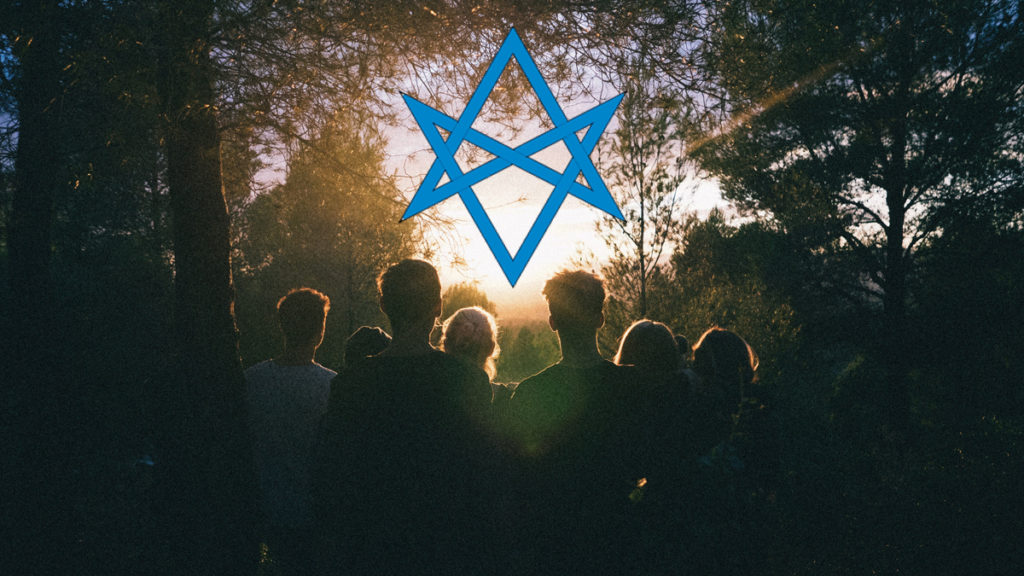
The purpose of any O.T.O. local body is to assist individuals to find their respective true wills and to promulgate Thelema. Differences in local culture notwithstanding, that’s what each lodge, oasis, or camp has a duty to do.
There are many ways individuals can interact with us. There are the obvious ones like attend Gnostic Mass, take initiation, become a member, or serve as clergy.
There are the less obvious and perhaps less appreciated ones like washing glasses after Mass, taking out the trash, making a $5 donation, or even clicking “Like” on a social media post.
But all these ways of interacting with O.T.O. are done in service to our ultimate purpose, which is help individuals bring about positive life change by finding their true wills and to promulgate Thelema.
This is our unique gift. It is the impact that unites us. When we keep this cause at the forefront of whatever we do, we best serve our communal goals and thereby best serve ourselves as members.
Crowley elaborates on this supreme cause in a variety of ways. One of the most conspicuous—which appears both on the Preliminary Pledge Form and on the O.T.O. USA website—says that O.T.O. is:
…pledged to the high purpose of securing the Liberty of the Individual and his or her advancement in Light, Wisdom, Understanding, Knowledge, and Power through Beauty, Courage, and Wit, on the Foundation of Universal Brotherhood.
Like most things that Crowley writes, he is referencing the Holy Qabalah here. The concepts relate to the sephiroth in the following way:
- Light – Kether
- Wisdom – Chokmah
- Understanding – Binah
- Knowledge – Chesed (and arguably the whole of the Ruach as comprehended in Daath)
- Power – Geburah
- Beauty – Tiphareth
- Courage – Netzach
- Wit – Hod
- Foundation of Universal Brotherhood – Yesod
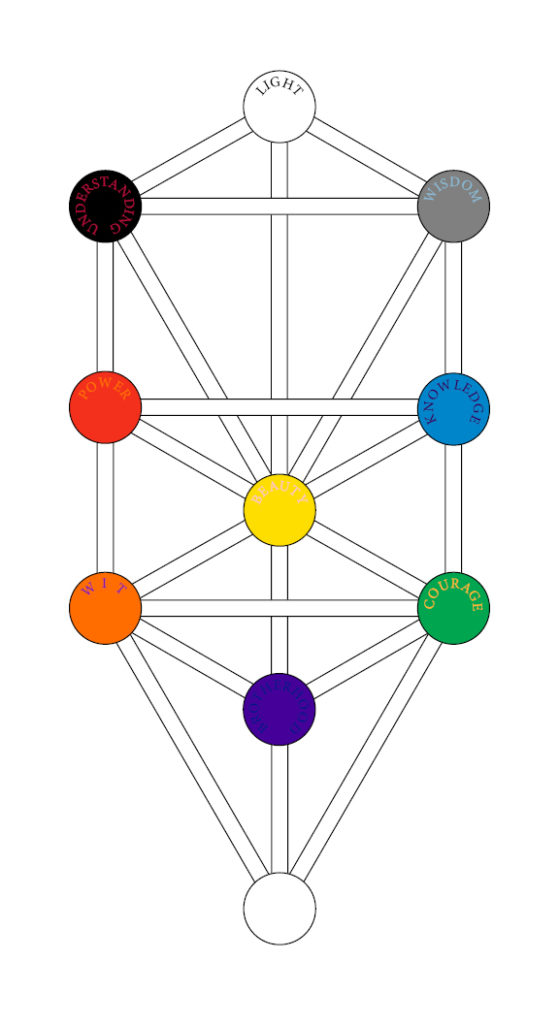
This is a useful way to think about the means by which we assist individuals and promulgate the Law of Liberty.
Here is just one way to think about these means:
Light: While the light represented by Kether (Ain Soph Aur) is unlimited and therefore without opposition, it is helpful to convey this concept to our minds in opposition with darkness. We confront the darkness of the human condition when we find ourselves groping for solutions to barely understood problems. Light represents clarity about fundamental reality that comes from understanding the Law of Thelema. It is knowing that whatever difficult situation we find ourselves in, there is a solution, and that solution is to know and to do one’s true will.
Wisdom is the ability to put that solution into action based on life’s experience. A large part of that is “minding one’s own business,” i.e., making the development of one’s own true will the center and theme of one’s life without being overly concerned with the opinions of others. As a society of individuals pursuing different paths, O.T.O. offers many opportunities to practice this kind of discernment.
Understanding entails the rejection of superstition. One cannot simply will for an end to skepticism. Its end is only achieved in samadhi or in mystical union with the Divine through meditation and prayer. Short of that, ultimate reality cannot be known in and of itself. We therefore practice tolerance as a way of life. When we embody this value in our lodges, oases, and camps, we invite a great diversity of points of view, life paths, and backgrounds, thereby enriching our communities and promoting maximal growth through the intersections of these points of view.
Knowledge: We promote scientific religion. We do not demand that individuals accept premises without sufficient evidence. As a result, we do not place arbitrary restrictions on individuals’ advancement in our organization or in their self-development. Instead we give them the tools necessary for growth and fulfillment.
Power: We emphasize self-empowerment and self-control over the control or manipulation of others. We recognize that the greatest power comes from individuals having the maximum amount of control over their own lives, including their physical and emotional impulses. We align ourselves with those who reject coercion and tyranny in all its forms.
Beauty: Our spirituality is not merely private or mystical in nature. Magick is meant to create harmony between the desires of individuals and the world around them. Our spirituality is therefore sensuous in nature, as beauty is the image of the reconciliation between what is and what ought to be. We perform our rituals rightly, with joy and beauty.
Courage is not freedom from fear but rather the capacity to withstand, to carry, and to act appropriately even while experiencing fear. We do not promise that every step along this path is going to be warm cookies and ice cream. But we do provide opportunities—through initiation and through fraternity—to learn and to practice courage, truthfulness, and other forms of emotional intelligence.
Wit is the capacity to think quickly, to know how and when to apply concepts. O.T.O. consists in a diverse group of individuals from many backgrounds. As such, there are many opportunities for novel forms of interaction. Novelty throws us back on our own resources. It demands spontaneity rather than repetition. In other words, it requires learning.
Universal Brotherhood (or Sisterhood or Siblinghood as we now say) is both the foundation of all that precedes as well as its natural culmination, just as Yesod is both the “foundation” of the Tree of Life as well as the natural endpoint on the astral plane of any magical current. It is an image of the world in which the gifts inherent in all Points of View are capable of manifestation and expression to the ultimate. It is the world we are attempting to create by bringing about life change, one individual at a time.
As Crowley says in the essay “Man” in Little Essays Toward Truth:
The Quest of the Holy Grail, the Search for the Stone of the Philosophers—by whatever name we choose to call the Great Work—is therefore endless. Success only opens up new avenues of brilliant possibility. Yea, verily, and Amen! the task is tireless and its joys without bounds; for the whole Universe, and all that in it is, what is it but the infinite playground of the Crowned and Conquering Child, of the insatiable, the innocent, the ever-rejoicing Heir of Space and Eternity, whose name is MAN?
This is merely a small sample of all the ways in which O.T.O. bodies give the gift of life change with the purpose of securing liberty and free expression of all individuals. These are the gifts we should leverage for our self-development and for the growth of our communities.
What other ones can you think of?
Another reason to practice Liber Resh
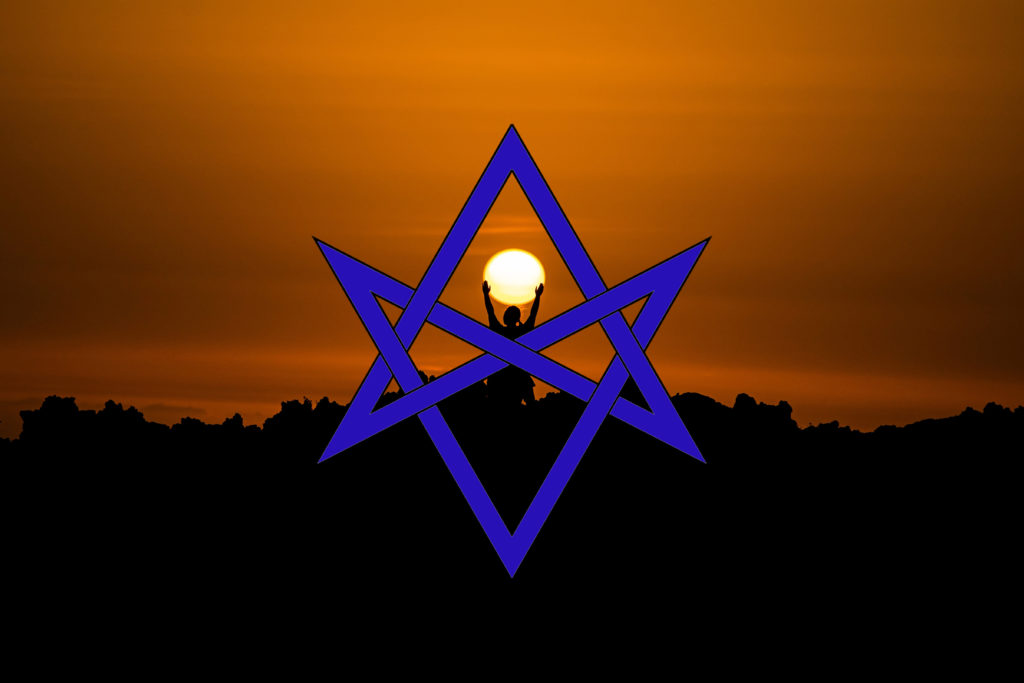
In the Platonic tradition, the Sun is a symbol of unity. It is the visible and sensible analog of the One Itself which gives unity in the purely intelligible realm. This One Itself transcends being and non-being. In fact it transcends all opposition whatsoever and is the sole cause of anything being whatever it is. For this reason it is also called the Good Itself.
The equivalent of the One in Thelema is Kether, which is also associated with Ra-Hoor-Khuit. Speaking in the 1st Aethyr of The Vision and the Voice, Ra-Hoor-Khuit declares:
I am light, and I am night, and I am that which is beyond them.
I am speech, and I am silence, and I am that which is beyond them.
I am life, and I am death, and I am that which is beyond them.
I am war, and I am peace, and I am that which is beyond them.
I am weakness, and I am strength, and I am that which is beyond them.
Yet by none of these can man reach up to me. Yet by each of them must man reach up to me.
The unity of opposites represented by Ra-Hoor-Khuit transcends both our capacity of reasoning as well as our capacities of sensation or intuition. Nevertheless, the Sun serves as a visual analog of this transcendent principle, much as it did for the Platonists. Thus four times a day, Thelemites turn toward the Sun and cry aloud:
Unity uttermost showed!
It is necessary to put ourselves into contact with transcendent unity, because as conditioned beings, we do not contain unity within ourselves.
Everything that we are or could even know—about ourselves or about the world—falls into five “heaps” or khandhas. We know by means of sensible impressions (rupa); the pleasure, displeasure, or boredom arising from them (vedana); perceptions (samjna); habituated tendencies (sankhara); and consciousness (vijnana). Each of these arises and passes beyond our control. Insofar as any of these abide for awhile, they change constantly. Therefore they are unreliable, and none can be said to be a self, to contain a self, to be under the control of a self, or to be in a self. None can provide lasting happiness. Even consciousness comes and goes throughout the day, when we fall asleep, or when we die.
For this reason, Crowley declared that the principle of unity of each person—as represented by their spiritual Sun, their Holy Guardian Angel—could not be found by means of introspection.
Apart from any theoretical speculation, my Sammasiti and analytical work has never led to so much as a hint of the existence of the Guardian Angel. He is not to be found by any exploration of oneself.
Magick without Tears, Chapter 43
And yet achieving unity is the preeminent goal of Thelemic ethics.
A Man whose conscious will is at odds with his True Will is wasting his strength. He cannot hope to influence his environment efficiently.
(Illustration: When Civil War rages in a nation, it is in no condition to undertake the invasion of other countries. A man with cancer employs his nourishment alike to his own use and to that of the enemy which is part of himself. He soon fails to resist the pressure of his environment. In practical life, a man who is doing what his conscience tells him to be wrong will do it very clumsily. At first!)
Magick in Theory and Practice, Introduction
Therefore turning toward the Sun four times a day is not a mere religious observance. It serves an important spiritual and ethical purpose.
By turning toward the Sun, we first admit that unity is not automatically present within us. As far as we have come in life, we still have work to do on ourselves. The process is continual. We can always improve.
Second, we recognize that the principle of unity—hence the principle of self-subsistence and enduring happiness—transcends who we ordinarily take ourselves to be. We recognize that when we identify with the skandhas, we’re like a person trying to build a house on quicksand.
Thelemites sometimes talk about the difference between the small-s self, which we identify with our egos, versus the big-s Self, which we identify with Jechidah or the Holy Guardian Angel. In fact there is only one self to speak of, since what we call “self” (with the small-s) is merely an illusion. When we turn toward the Sun, we allow its radiance to dispel this illusion all together, so that our entire being can enjoy contact with that which truly deserves to be called self.
He is the Open Eye of the exalted Sun, before whom all shadows flee away: also that Secret Eye which makes an image of its God, the Light, and gives it power to utter oracles, enlightening the mind.
Magick in Theory and Practice, Chapter 5
I adore the might of Thy breath,
AL III.37
Supreme and terrible God,
Who makest the gods and death
To tremble before Thee—I, I adore thee!
And then finally, having recognized the true source of unity beyond becoming, beyond opposition, we learn to surrender ourselves to it. Gradually we come to see ourselves as instruments or extensions of it. The more frequently we reestablish conscious contact with this spiritual unity or Jechidah, the easier and more habitual it is for us to find that lifeline and source of spiritual power in difficult times. We learn to tolerate misfortune with equanimity, knowing that even in the darkest hour, a radiant god stands at our backs.
And should we follow that lifeline back to its source, any one of us can pass through that “secret door / Into the house of Ra and Tum, of Khephra and of Ahathoor” and attain to direct awareness of that “center and secret of the Sun” which Crowley himself knew in his most exalted visions.



